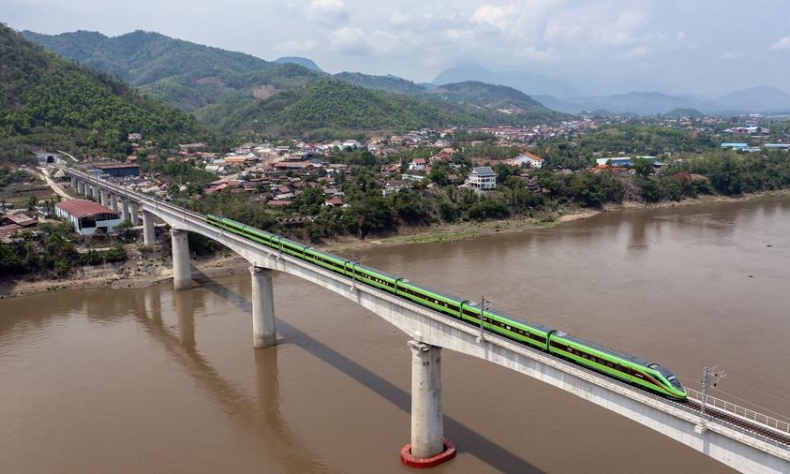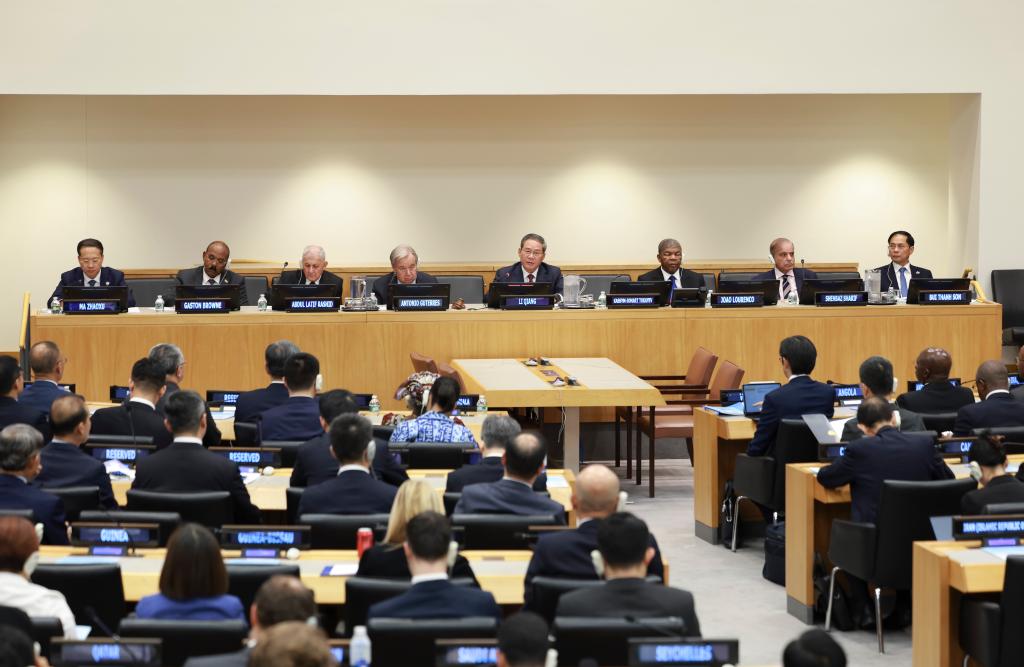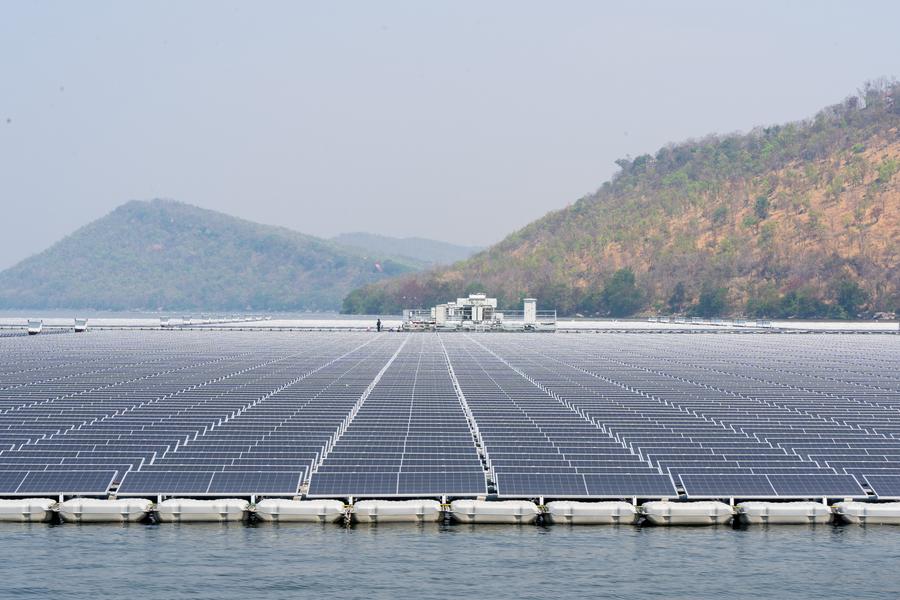Global Development Initiative Delivers Where Western Aid Failed

China’s Global Development Initiative delivers clean stoves, digital infrastructure and new technologies to developing nations while Western aid remains trapped in bureaucratic debates and broken promises.
Chinese Premier Li Qiang addressed the United Nations at a high-level meeting on the Global Development Initiative (GDI) on Sept. 23. His speech carried a simple yet profound reminder: Development is not a peripheral issue in world affairs; it is the central one. For billions across the Global South, development is not an abstract goal but the daily difference between security and insecurity, dignity and indignity, even life and death.
Li’s address placed China squarely in the role of steward, arguing that global development is a public good too important to be left to unilateralism or great power competition. The GDI, launched by Chinese President Xi Jinping in 2021, has already mobilized $23 billion in support of the Global South, with 1,800 cooperation projects completed. Now, Beijing is pledging another 2,000 livelihood projects, new digital capacity building, AI collaboration and 200 maritime development projects aimed at vulnerable island states.
This is not charity. It is a major commitment, and it speaks to a moment when the existing development order, led by the United States and its allies since 1945, is visibly fraying.
Development as legitimacy’s newbattleground
The heart of Li’s speech was not about China alone, but about legitimacy. He reminded the audience of what history shows clearly: When countries cooperate, development advances; when zero-sum confrontation prevails, development halts. It was a pointed rebuke of protectionism, sanctions and the deliberate weaponization of supply chains.
Here, China is staking out the moral and practical high ground. While the U.S. fails to produce a coherent international vision, yet uses its power as a blunt instrument for destruction, Beijing positions itself as the voice of the global majority: the 130-plus countries and international organizations that have formally joined or supported the GDI. These states are not seeking new Cold War blocs — they are seeking roads, schools, hospitals, clean energy, technology transfer and debt relief. In a word, they are seeking survival and a better life.
If the legitimacy of global governance in the 20th century rested on preventing world war, the legitimacy of the 21st century rests on preventing development failure.
Filling the vacuum of broken promises
For decades, the Global South has been promised assistance from the North that never fully materialized. The Millennium Development Goals were underfunded. Climate financing pledges remain unfulfilled. The pandemic revealed structural inequities in vaccine distribution and medical capacity.

Li directly criticized developed countries for failing to meet financing obligations and even cutting funding to global institutions. His message was unambiguous: The development gap between North and South is not inevitable; it is the result of choices. Li positioned the GDI as a corrective — a platform where concrete projects and reliable financing replace empty promises.
Consider the contrast. While Western governments debate whether to renew foreign aid budgets, Beijing commits to clean stoves in developing countries, satellite support for climate monitoring, and digital infrastructure for the “Digital South.” These efforts may sound modest in isolation, but in practice, they respond to the daily needs of communities. They address everything from energy security to food resilience. That concreteness is why the GDI has gained traction so quickly.
Innovation as a shared driver, not a weapon
One of the most significant parts of Li’s speech focused on technology. Artificial intelligence and digital divides are now fault lines of inequality as serious as traditional poverty gaps. While Western discourse often frames AI in terms of national competition or existential risk, China has emphasized AI as a driver of development.
By proposing the AI+ International Cooperation Initiative and pledging funding for digital capacity-building in the Global South, Beijing is signaling that new technologies must be distributed, not hoarded. This directly challenges tech decoupling, export controls and the “walling off” of knowledge.
Time will tell whether China can make good on this promise although its track record is an indication. But the framing matters: Instead of AI as a weapon in a contest for dominance, Beijing casts it as a shared tool for enhancing productivity, governance and resilience across borders.
Green development as security
Li’s remarks on sustainability echoed another global anxiety: climate change. Here again, China positions itself as a provider of tangible goods — pointing to its global leadership in wind and solar supply chains, and pledging to export those gains to developing countries.
The commitment to 200 maritime cooperation projects for small island nations and a clean stove project for developing countries is more than symbolism. It reflects a recognition that climate security is now inseparable from development security. Without clean energy and resilience-building, whole nations face existential risk.
As scientists warn of record-breaking global temperatures, Beijing’s efforts to turn the burden of climate crisis into an opportunity for shared growth will resonate far more powerfully than another round of broken Western promises.

China as a responsible ‘major developing country’
Perhaps the most striking declaration of the speech came when Li announced that China will no longer seek any new special and differential treatment in the current and future WTO negotiations. For years, critics have accused Beijing of claiming “developing country” status to win favorable terms. By voluntarily stepping away from those provisions, China signals confidence in its economic position and neutralizes a recurring criticism from Washington and Brussels.
At the same time, Li underscored China’s self-identification as a “major developing country.” The phrase matters because it signals solidarity with the Global South while acknowledging China’s hybrid position: no longer poor, not yet rich by Western standards, but committed to taking the lead from within the developing world rather than above it.
This rhetorical balancing act may prove one of China’s strongest assets. Where Western aid often carries the tone of paternalism, Beijing constructs its initiatives as horizontal partnerships among peers.
Significance for the UN and global order
Li’s speech also carried institutional implications. By anchoring the GDI within the U.N. framework and repeatedly invoking multilateralism, Beijing is attempting to re-legitimize the U.N. as a center of gravity for global governance. In an era when many criticize the U.N. as weak or irrelevant, China is effectively saying: This platform still matters, if we use it to address the real issues of humanity.
If the GDI continues to scale — 3,800 projects over a decade, billions mobilized, new organizations like a World AI Cooperation body — it could become one of the most visible vehicles of “functional multilateralism.”
Development or decline
Premier Li’s U.N. speech was not a laundry list of programs. It was a statement of philosophy: that development is the true measure of legitimacy in our time. States that deliver tangible improvements for ordinary people will be trusted. States that hide behind militarism or zero-sum competition while neglecting the basics of human welfare will not.
With five years left to achieve the U.N. 2030 Agenda, the stakes are high. The GDI may not be perfect, but it is at least a platform grounded in action and inclusion, not rhetoric. Whether or not Western capitals embrace it, billions across the Global South already have.
In that sense, Li’s words in New York were not only about China’s vision. They were a mirror held up to the international system itself: Cooperate and prosper, or divide and decline. China and its Global South partners have made their choice.
Bradley Blankenship is an investigative journalist, columnist, author, political analyst and the founding chairman of the Northern Kentucky Truth & Accountability Project, a local U.S. anti-corruption network and civic oversight body.
 Facebook
Facebook
 Twitter
Twitter
 Linkedin
Linkedin
 Google +
Google +










